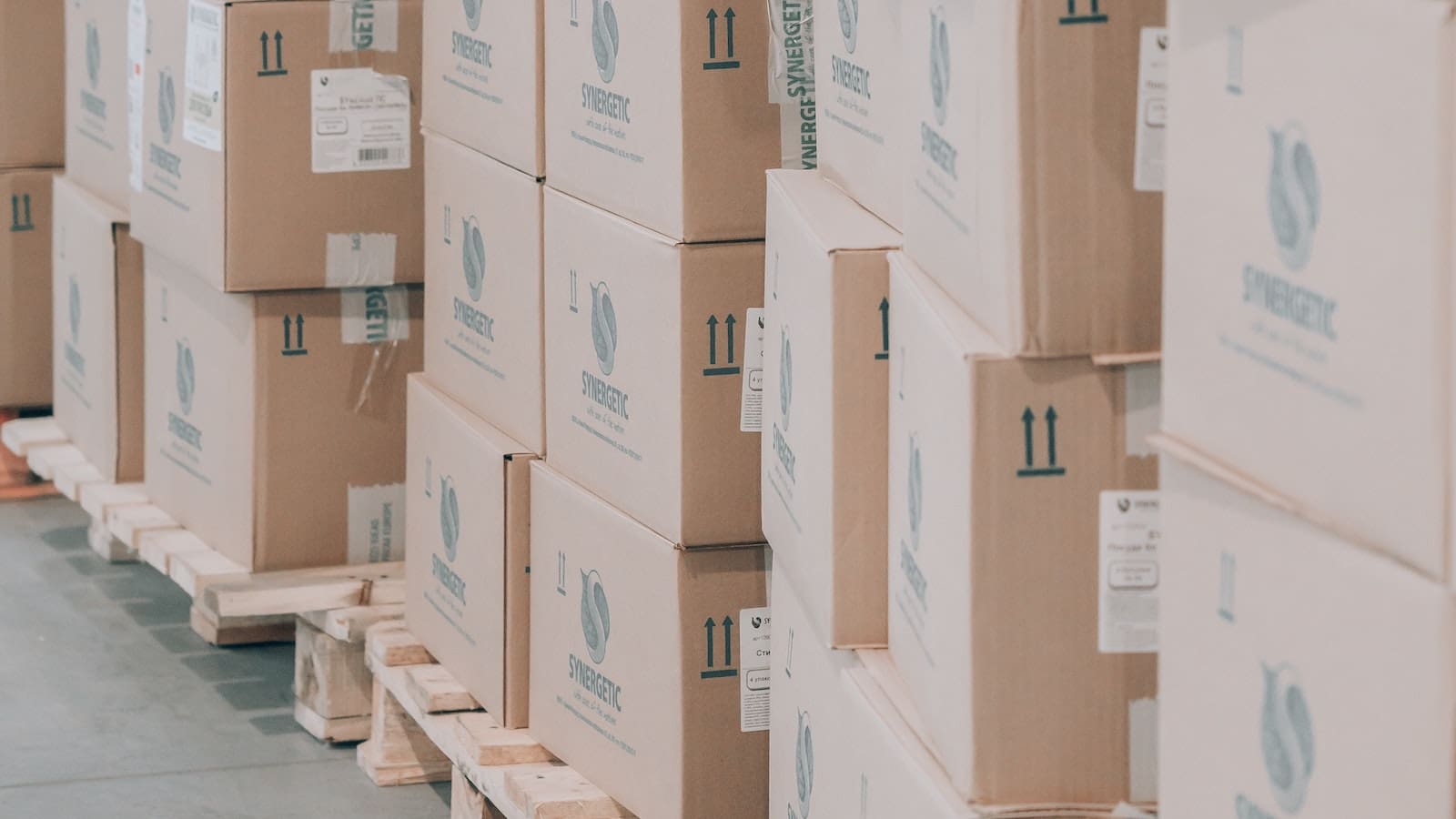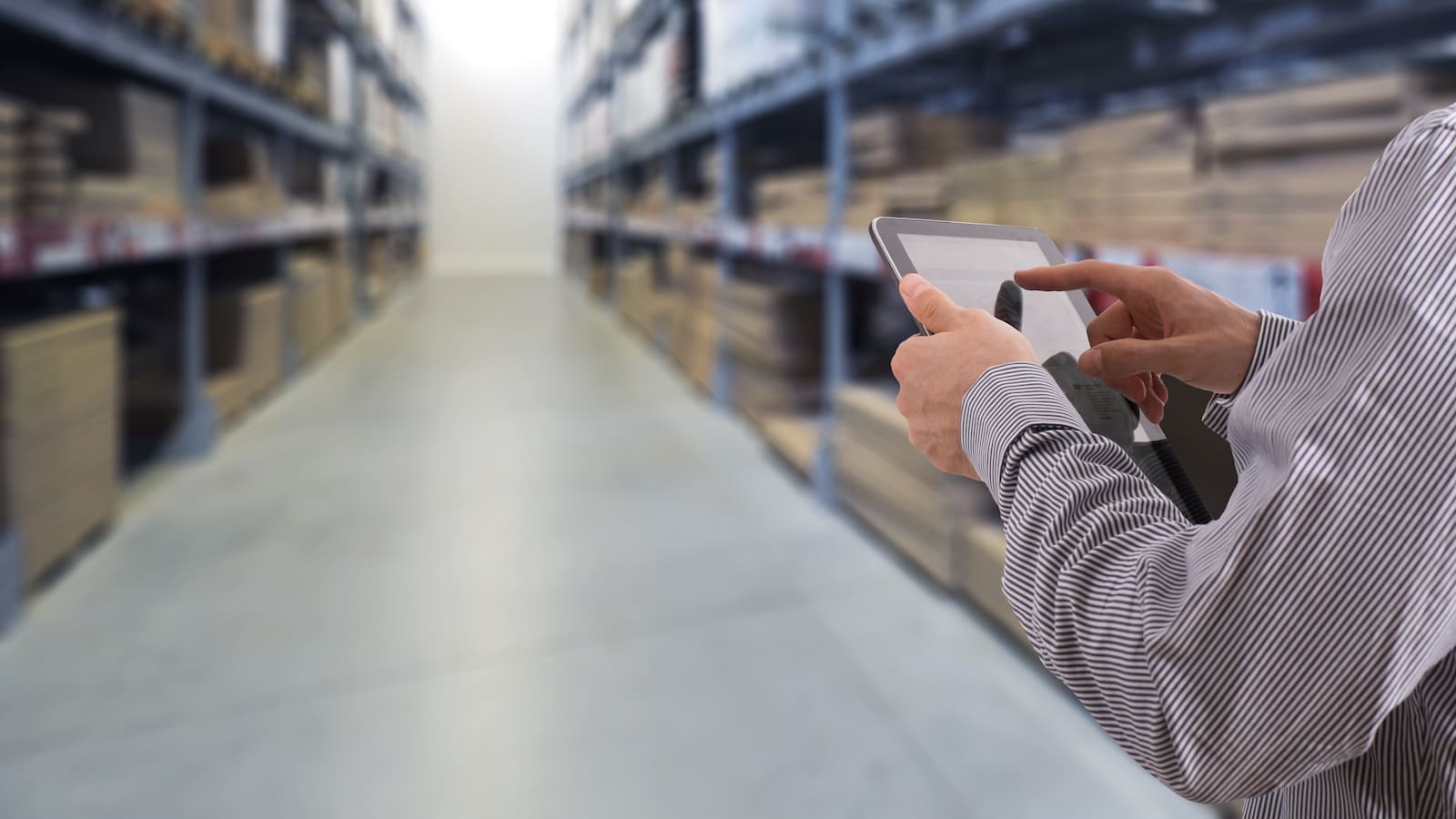Table of Contents
** Minutes
How does wholesale shipping compare to regular shipping?
How to find wholesale suppliers
No customer likes slow, expensive shipping — and wholesale customers are no exception.
But whether you’re running a growing business that’s shipping wholesale or or an ecommerce giant, wholesale shipping poses both cost- and timing-issues.
With fast and affordable shipping as the standard, exorbitant shipping costs or delays on wholesale orders often lead a B2B customer to abandon their cart.
However, with the right fulfilment solution in place, wholesale shipping can get easier. If you partner with a logistics platform that can negotiate shipping rates and support B2B fulfilment, your business can win new opportunities that grow your business.
In this article, we’ll cover what wholesale shipping is, different wholesale shipping methods, and how a 3PL like ShipBob can help make the wholesale shipping process seamless.
What is wholesale shipping?
Wholesale shipping is the process of shipping wholesale orders.
Wholesale orders (also called B2B orders) are orders placed by a business, rather than an individual customer, and are usually for a large quantity of a particular product.
How does wholesale shipping compare to regular shipping?
Regular shipping and wholesale shipping seem similar in theory; but in actuality, there are nuanced differences between the two.
Here is a breakdown of the main features, costs, and risks associated with standard shipping and wholesale shipping.
Wholesale
Wholesale shipping involves one business (the “wholesaler”) shipping large quantities of a product or products to a different business that purchased the goods.
When selling wholesale, many brands establish a minimum order quantity (MOQ). Buyers will have to purchase goods that are equal to or more than this minimum quantity for the order to be approved. Such limits help the wholesaler get better deals on shipping costs, and pass on the savings to the buyer.
On the downside, this can tie up the buyer’s capital in inventory for a longer period. In addition, if the entire shipment gets stuck somewhere en route due to logistical issues, the customer will receive all of the stock a few business days late.
Wholesale shipping also limits flexibility in managing orders, and the size and quantity of the items ordered may require more expensive types of transportation, such as air or ocean freight shipping.
Standard
Standard shipping (also known as DTC shipping) involves transporting a single unit or a very small batch of goods to an individual customer.
It is typically less expensive than wholesale shipping, as the dimensional weight and/or billable weight of a few individual SKUs is almost always significantly smaller than that of a wholesale bulk order.
Standard shipping is also usually faster than wholesale shipping. Since only a few items need to be transported, the order can be picked, packed, and shipped as soon as it’s processed, shortening delivery times.
On the other hand, smaller orders are easy to accidentally misplace or lose in transit, and standard shipping orders rarely qualify for bulk discounts.
“While we initially used ShipBob exclusively for our retail fulfilment, we quickly outsourced DTC fulfilment to them as well once we experienced how easy and effective it was. ShipBob’s omnifulfillment solution could handle every sort of order we had, including retail, DTC, and B2B, and had no qualms whatsoever about facilitating our FBA prep orders for Amazon.
Multichannel fulfilment with ShipBob is affordable, too, as not having to do any shipping ourselves enables us to keep low overhead, and ShipBob’s transparent pricing across channels provides even more cost-savings.”
Nathan Garrison, Co-Founder and CEO of Sharkbanz
How to ship wholesale
Shipping wholesale can get complicated, especially if your business is new to B2B.
Here are some best practices to follow when shipping wholesale orders.
Finding wholesale shipping supplies
Choosing the right wholesale shipping supplies can help you ensure that your goods reach the customer undamaged and keep wholesale shipping costs down.
Standard shipping supplies used in DTC shipments such as mailers, pouches, or totes will not be cost-efficient for large quantities of items. Depending on what products you are shipping, consider using shipping boxes or pallets.
You may need additional packaging supplies as well, such as container liners, bubble wrap, and labels.
When shipping fragile items like perfumes and smart gadgets, it is especially important to ensure that they are securely packaged (with cushioning) and handled carefully to ensure that integrity is maintained.
Make sure you have the right permits
It is important to research and obtain the licenses and permits required to sell wholesale in your location and industry.
You may need a reseller’s permit, employer identification number (EIN), a sales license, and/or a sales tax ID, but specific requirements vary from country to country and even between municipalities.
Choose the right platform
If you want to sell and ship wholesale orders, you’ll need an ecommerce platform that enables you to do so.
Rather than creating a whole new website for your wholesale channels, invest in an ecommerce platform that has B2B capabilities or plug-ins. This allows you to manage your B2B and DTC orders through one platform, which saves you tons of time and trouble.
Some of the best wholesale ecommerce marketplaces to consider are Alibaba, Shopify Plus, BigCommerce, and WooCommerce.
Consider partnering with a logistics provider
Before you commit to selling wholesale, you need to establish a fulfilment and distribution strategy.
While it is possible for a merchant to buy or rent their own warehouse space, hire workers to pick and pack wholesale orders, print labels, and navitage EDI on their own, many find it helpful to outsource these functions to experts.
Logistics providers like ShipBob take care of retail dropshipping and retail distribution on behalf of wholesalers, which makes selling B2B that much easier.
In the hands of experts, your B2B operations can also become much more cost-effective and efficient, which together can further improve the customer experience.
“We also stock several hundred smaller boutique wholesales across the country. We recently started selling through a few major retailers, including Kohl’s and Francesca’s. It’s going really well!
ShipBob’s B2B Fulfilment Suite powers retail dropshipping and retail distribution for other retailers that we’re hoping to partner with in the future, including Target and Walmart, so we’re excited to keep expanding our retail partnerships with ShipBob. Retail is looking like it will be a huge focus for us in the coming years, and we’re hoping that with ShipBob’s help, it will continue to be a larger and larger part of our business.”
Aaron Patterson, COO of The Adventure Challenge
How to find wholesale suppliers
If you wish to buy wholesale, rather than sell, there are a variety of ways to find wholesale suppliers.
- Contact a product’s manufacturer and request a list of their wholesale distributors.
- Try to connect with local suppliers (which lets you save on shipping costs and physically try out the new products before buying them in bulk)
- Check wholesale directories or magazines
- Attend wholesale trade shows
- Conduct an online search for wholesalers of the desired product
However you find a supplier, be sure to compare the wholesale price and quality before making a decision.
Check the return policy as well, and ask about refunds to ensure that you do not end up not stuck with goods that are of inferior quality or damaged.
Shipping methods
There are a variety of ways to ship a wholesale order. Here are 3 of the most common wholesale shipping methods.
Freight shipping
Freight shipping is best suited for large commercial orders. This involves transporting wholesale orders in large, sturdy containers via ship, aircraft, truck, or intermodal via a train or ground transit.
Freight shipments can be full truckload (FTL), less-than-truckload (LTL), partial truckload (PTL), intermodal, and expedited.
International shipping
When a business purchases goods from international platforms like Alibaba, international wholesale shipping may be required. International wholesale orders must be carefully measured, weighed, and packed to avoid incurring additional charges.
Domestic shipping
Wholesale domestic shipping is one of the most affordable shipping options for local wholesale orders. The USA has a lot of couriers to choose from (including regional couriers) and the formalities are much easier to navigate compared to those involved in international shipping.
If the order is not urgent, ground delivery for wholesale orders is by far the cheapest option available, and is generally plausible for domestic shipments.
Why can shipping be expensive in 2022: Outlook
Thanks to the supply chain disruptions, shipping congestion, and demand for cargo space resulting from the pandemic, wholesale shipping rates have skyrocketed and will remain high in 2022.
When wholesale shipping costs rise, wholesalers may try to offset the extra expense by raising the price of the goods. However, this may in turn lead to more abandoned checkouts and business lost to competitors.
ShipBob can help wholesalers reduce wholesale shipping costs even during times when demand for shipping outpaces supply.
Our omnichannel solution enables retail dropshipping and distribution capabilities alongside regular DTC fulfilment and shipping, while our global network of fulfilment centres enables merchants to optimally distribute their inventory and subsequently reduce shipping costs.
ShipBob also helps merchants compare carrier options such as USPS, FedEx, and UPS, and negotiates bulk discounts on behalf of our customers to provide further savings.
For international wholesale orders, we also help our partners handle the complexities of customs, duties, and tariffs to streamline international wholesale shipping.
With ShipBob’s EDI-compliant software and fulfilment expertise, you can branch into wholesale shipping with confidence and keep growing your business.
“ShipBob’s ability to service both D2C and B2B has enabled us to build more consistent procedures and practices across our different sales channels.
Along with Chewy, we’re also fulfilling orders through Amazon, as they are the two biggest online pet sales channels in the US.
We utilise ShipBob’s EDI solution that is connected to our 3rd party EDI platform SPS Commerce for our Chewy orders, and when we don’t ship directly to Amazon, we rely on ShipBob’s direct integration with Amazon for FBA orders.
We’re even exploring additional channels that ShipBob supports, such as Walmart.com.
Being an omnichannel brand is critical for us, so we can reach more pet lovers from more places. We’re glad that ShipBob helps us keep up with demand from all the places we reach our customers.”
– Stephanie Lee, COO at PetLab Co.
Wholesale shipping FAQs
Here are answers to the top questions about wholesale shipping.
How much does it cost to ship products in bulk?
The cost of shipping products in bulk will depend on several factors, including size and weight of the shipment, carrier rates, and demand for transit or cargo space.
What are the risks of shipping products in bulk?
Wholesale shipments are almost always high-value, and thus carry many risks. Some risks include a higher likelihood of damaged goods, regulation issues, and shipment delays.
Does ShipBob ship wholesale?
Yes! ShipBob’s EDI-compliant B2B fulfilment suite assists retailers with both retail dropshipping, as well as B2B and retail distribution.
What is the process for shipping wholesale products?
Before a business starts shipping wholesale, it must obtain the correct licenses, secure packaging and shipping supplies, choose a wholesale ecommerce platform, and establish a fulfilment and distribution strategy on its own or with the help of a logistics solution.
Once this is done, business can begin picking and packing orders that meet the business’s minimum order quantity for wholesale orders. These orders can be shipped via ground or freight shipping, or even internationally.



